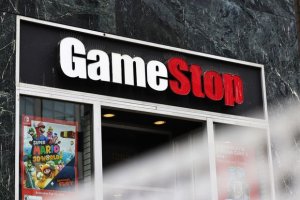Court acquits Citadel, Robinhood and others in meme stock saga
A US judge dismissed a months-long litigation accusing a handful of retail brokers, clearing houses and a market maker of conspiring to restrict trading on GameStop and other “meme stocks”.

A court investigation into January’s chaotic short squeeze found no evidence of collusion, the federal court in Miami said.
Citadel and other firms named in the lawsuit celebrated the decision publicly even as retail investors on social media continue to believe that they acted in concert during the meme-stock frenzy.
“We are pleased that the court agreed that there is no basis for the plaintiffs’ conspiracy theories and summarily dismissed the case,” Citadel Securities said in a corporate statement.
The civil case was dismissed without prejudice, giving the plaintiffs until December 20 to possibly file an amended complaint, then the prosecutor has the option of re-filing the charges.
Investors affected by the incident believe that market makers buying order flow from Robinhood and other discount brokers instructed them to stop, suspend, or limit trading or otherwise refuse to do business. This had created a situation in which Citadel Securities had the power to dampen the rally by ordering its partners to halt stock purchases.
But in a 51-page decision, the court found no plausible direct evidence of conspiracy, and said the plaintiffs’ analyses were “no substitute” for evidence of individual or collective wrongdoing.
Chief judge Cecilia Altonaga described plaintiffs’ allegations as “insufficient standing alone to raise an inference of conspiracy.” The court then turned to probe plaintiffs’ claims over “sufficient plus factors” that could make “the parallel conduct more probative of conspiracy than of conscious parallelism.”
These ‘plus factors’ centered around Citadel Securities’ payment for order flow to execute more than half of Robinhood’s trades. In particular, 34% of Robinhood’s revenue derived from transactions with Citadel. Further, Apex sent 23.26% of clints’ orders in S&P 500 stocks and 13.26% of order flow for non-S&P500 stocks to Citadel Securities in January 2021. E*Trade Securities and Interactive Brokers were also named as defendants in the case.
As such, Citadel Securities has been a key source of these platforms’ revenue, which fed conspiracy theories that the US market maker leaned on their executives to end the short squeeze by restricting users from buying meme stocks.
In a Wednesday ruling, the court found no evidence that Citadel threatened to cut off business relationships with any app if they did not impose trading restrictions. The judge also wondered why these brokers wouldn’t simply turn to use another market maker in such a scenario. The mere fact that Citadel Securities was an important business partner does not provide sufficient motive to conspire, the court concludes.
“These are generic descriptions of features that many industries share. While it is perhaps necessary to allege some opportunity to conspire to infer a conspiracy, the mere opportunity to conspire among antitrust defendants does not, standing alone, permit the inference of conspiracy,” Altonaga wrote in her decision.
The complaint also cited communications between Apex and Robinhood in which the latter was warned that retail investors found a loophole around trading restrictions it imposed. While this fanned the flames of those theories and plaintiffs claimed it shows Apex was “policing the conspiracy,” the court said helping a competitor prevent fraudulent conduct is not an antitrust violation.
Commenting on documents revealed in the lawsuit, which allegedly show conversations between top executives at Robinhood and Citadel, the judge said it only added extra drama to conspiracy claims.
“Admittedly, these emails may be somewhat suspicious given the participants and their timing. But are a few vague and ambiguous emails between two firms in an otherwise lawful, ongoing business relationship enough to “nudge Plaintiffs’ claims across the line from conceivable to plausible,” the ruling further reads. The proposed class action labeled these communications as conspiracies.
A separate investigation by the US securities regulator also found no evidence of the so-called “gamma squeeze,” which is caused by the “naked short selling,” where investors short sell shares that have not been affirmatively determined to exist.
Rather, the agency asserts the momentum seen in meme stocks was entirely driven by the retail community, including when they forced hedge funds to cover their short positions. The SEC’s report also describes a process in which massive trading volumes forced retail brokers to temporarily stop or limit offering meme stocks due to capital requirements.









